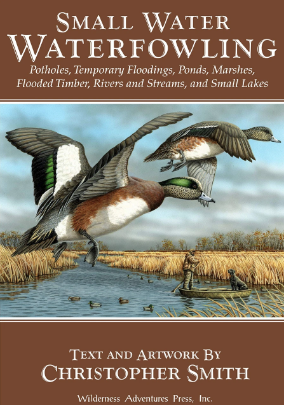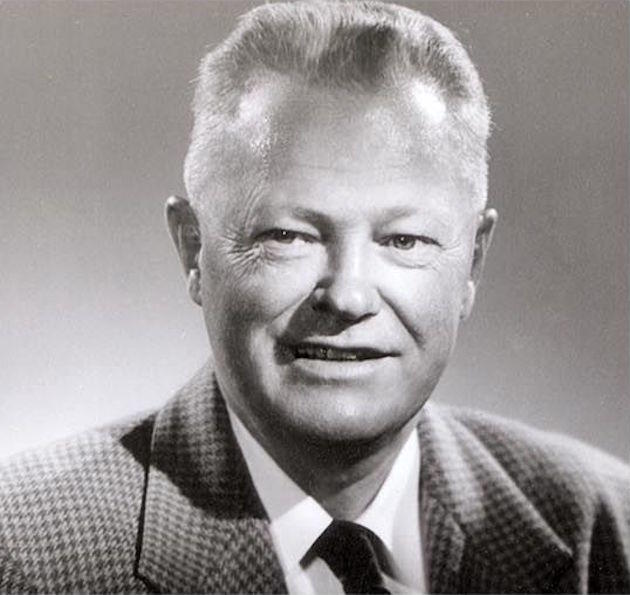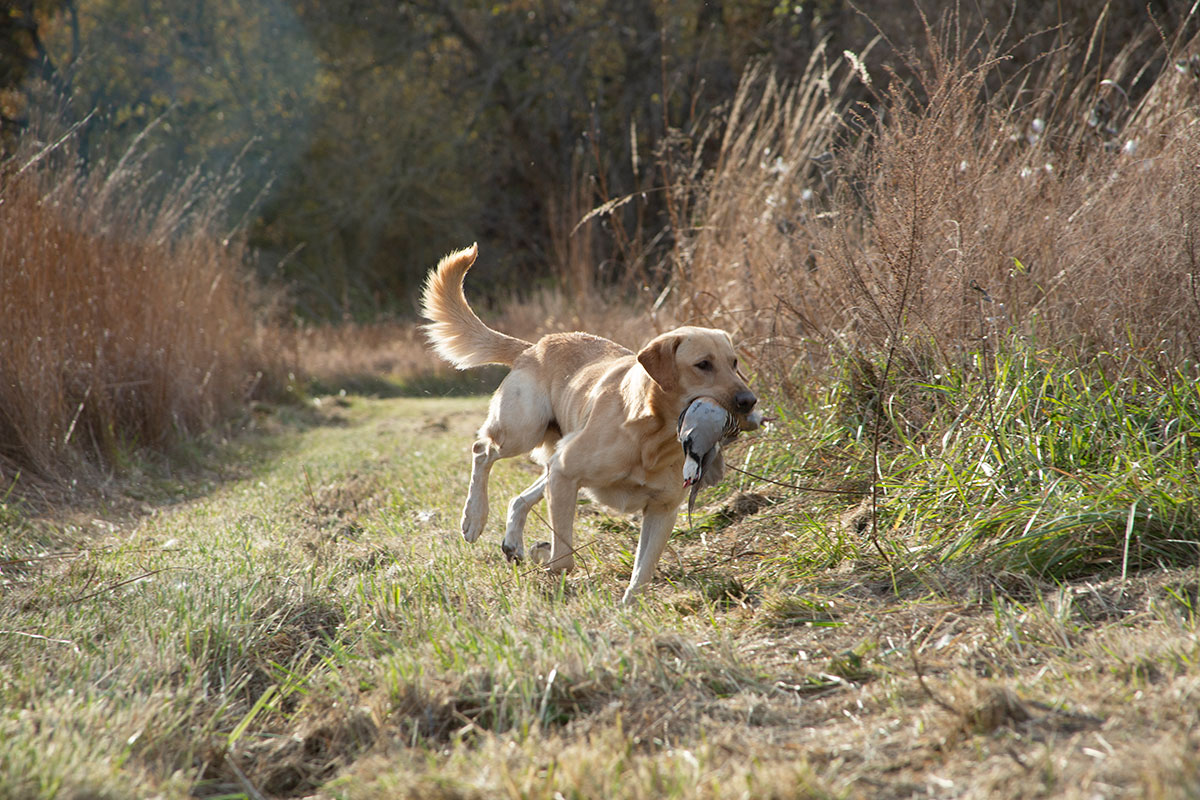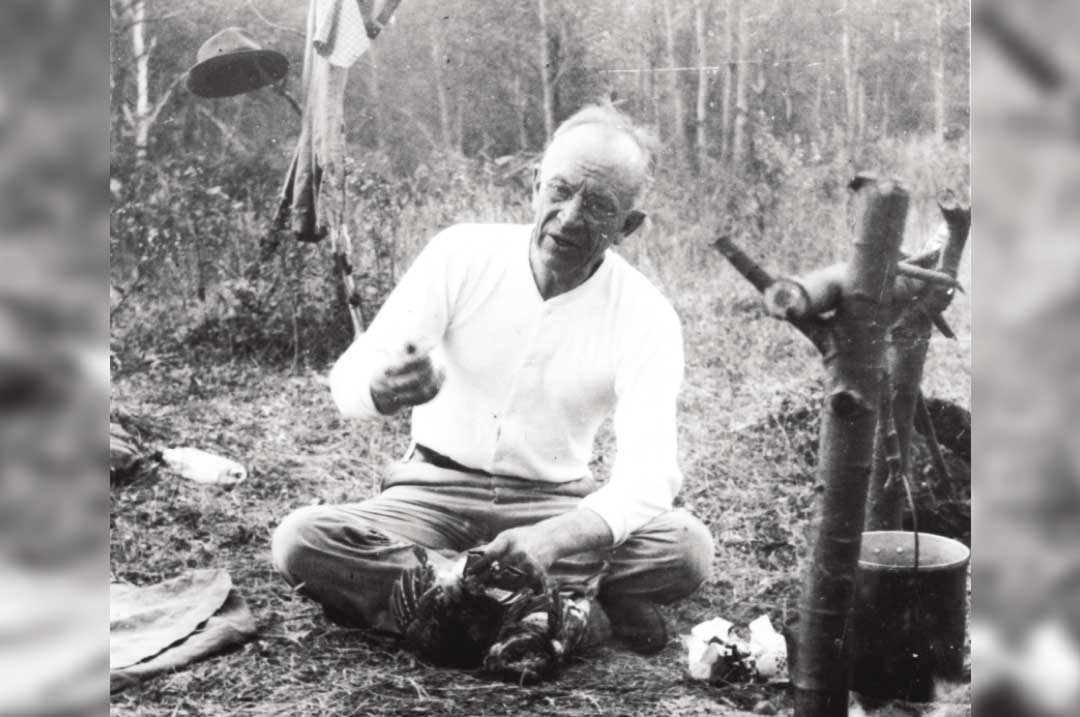Every year on the anniversary of the great 1940 Armistice Day Storm, which killed dozens of hunters in the Upper Midwest, we read harrowing accounts of the ordeal written by a wide variety of fine authors—some living, some long gone.
The story of that day is riveting, and most hunters agree that one of the best accounts was penned by outdoor writer Gordon MacQuarrie, then of the Milwaukee Journal. MacQuarrie was already well-known for his Stories of the Old Duck Hunters Association when the great storm hit in his backyard. He headed straight for ground zero on the upper Mississippi River and wrote from the scene of the tragedy. As with most of his writing, the story was gritty and timeless.
But there is another anniversary associated with Armistice Day (now Veterans Day) that comes to mind for this old duck hunter Each year, on the day before Veterans Day, I’m reminded of a great loss . . .
On November 10, 1956, at 10:53 in the evening, Gordon MacQuarrie, the original Old Duck Hunter, died unexpectedly of a heart attack at his home in Milwaukee, Wisconsin. He was 56 years old—my age as I write this, which is probably why I feel the urgent need to talk about MacQuarrie’s last hunt, his last week, his last day.
In the month leading up to his death, MacQuarrie had been given an annual physical examination in which the doctor pronounced him fit as a fiddle. He wasn’t. During the course of writing a biography on MacQuarrie, I was told by multiple sources that he had been complaining for some time of being unusually tired. Some of his friends, particularly his best friend, Paul Skamser, said he wasn’t taking care of himself. He smoked too much, he ate too much, and he just wasn’t the energetic—some would say “frenetic”—old Gordy they were used to.
MacQuarrie and his second wife, Ellen, spent the weeks preceding his death at their favorite place in the world, Middle Eau Claire Lake in far northwest Wisconsin. It’s a place that fans of the ODHA, Inc., know well through MacQuarrie’s uncanny descriptive abilities. So many of the classic MacQuarrie tales were set at his cabin on the lake that it indeed became a character in his writing, nearly as important as “Hizzoner” Al Peck, the President of the Old Duck Hunters.
Mac and Ellen went to the lake at the end of October so he could chase ducks and “pa’tridge,” and maybe even muskies if the weather cooperated. Unfortunately for MacQuarrie, the weather was a bit too fine for his favorite outdoor activity—duck hunting. No flights arrived while he and Ellen waited impatiently for ten days. The bluebills and canvasbacks of bygone days stayed north. There were a few grouse to keep him occupied, some fishing, and lots of friends around as always, but Mac wanted ducks. He wrote way back in 1937 that “[i]f I must choose among the sports that draw me into the open, it will be duck hunting. No other sport of rod and gun holds such mystery and drama.”
But the ducks didn’t come, and eventually he and Ellen had to return to Milwaukee and the newspaper (Ellen was also a Journal reporter). No sooner were they back in the city than duck weather finally arrived up north. It galled him that he had missed the flight, but he knew there would be other years and other duck hunts.
And there were other duties to attend to. The Wisconsin deer season was about to open, so MacQuarrie wrote a piece for the Journal about the old ways of hunting versus the new-fangled, shortcut-filled strategies of modern hunters. It was a common theme in his writing, and it wasn’t complimentary to the young hunters of his day.
Then he wrote a letter to his friend Posey at the lake, asking if the flight did indeed arrive shortly after he left. That letter was likely the last thing he ever put on paper. It was late in the evening on November 10, 1956. He told Ellen he was tired and went to bed. She went to check on him a little while later, but he was already gone.
The following is an excerpt from the biography I wrote on Gordon:
Then he heard the call of all the Old Duck Hunters who had gone before. Al was there; so was Fred. They waved him into the blind and hushed him with a mittened hand on his knee. Around the lake he saw the huddled forms of other Old Duck Hunters, crouched behind walls of jack-pine and scrub oak, their faces hidden as they instinctively reacted to the sound of wingbeats overhead. Hundred-year-old wooden blocks bobbed in the wind-torn waters before them. He didn’t recognize the others, but he knew them just the same. He was sure Carl was out there, and Hank, and Chad, too.
Above his blind the bluebills were circling, unsure whether to slide right into the decoys or make for calmer water. The lead bird decided for them, and with a sound like tearing silk they committed to the spread. The Old Duck Hunters rose as one, and the sound of their shots, muffled by earflaps and heavy coats, still echo on the shoreline of Libby Bay. The birds that remained were quickly swept out into the big lake, but there was no cause to worry. They would be tossed by the waves onto the sandy shore across the bay, where they would be picked up when the hunt was over.
 Christopher Smith’s knowledge of duck and goose hunting has been earned through both experience and education. A native of Michigan, he holds a BS in Wildlife Management from LSSU in Michigan’s Upper Peninsula which, he jokes, “was a good way to go to class in the morning and duck hunt in the afternoon.” His love for waterfowl has come through in the 20-plus years panting wildlife in his “other” job, with four state duck stamp titles and two state Ducks Unlimited Sponsor Print titles to his credit, as well as placing high in the national event.
Christopher Smith’s knowledge of duck and goose hunting has been earned through both experience and education. A native of Michigan, he holds a BS in Wildlife Management from LSSU in Michigan’s Upper Peninsula which, he jokes, “was a good way to go to class in the morning and duck hunt in the afternoon.” His love for waterfowl has come through in the 20-plus years panting wildlife in his “other” job, with four state duck stamp titles and two state Ducks Unlimited Sponsor Print titles to his credit, as well as placing high in the national event.
But what sets him apart is his skill, his knowledge, and his techniques accumulated over nearly four decades, a dozen states, and a half-dozen Canadian provinces. In a spot where more is often viewed as better, Smith weaves throughout personal hunting stories the important roles ethics play for the modern-day ‘fowler, how a full bag limit isn’t the end goal, but rather icing on the cake. In all, this is one of the finest treatises on waterfowling to come out in years—because small water means big sport. Buy Now




